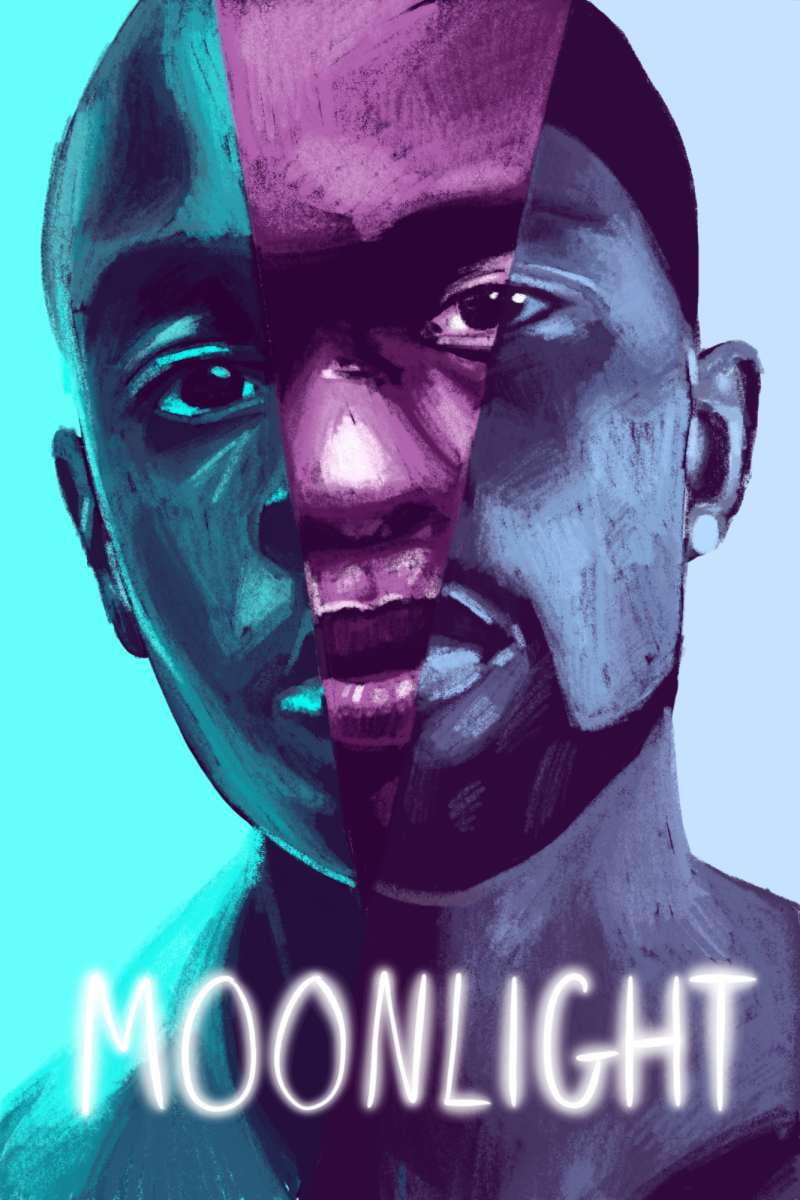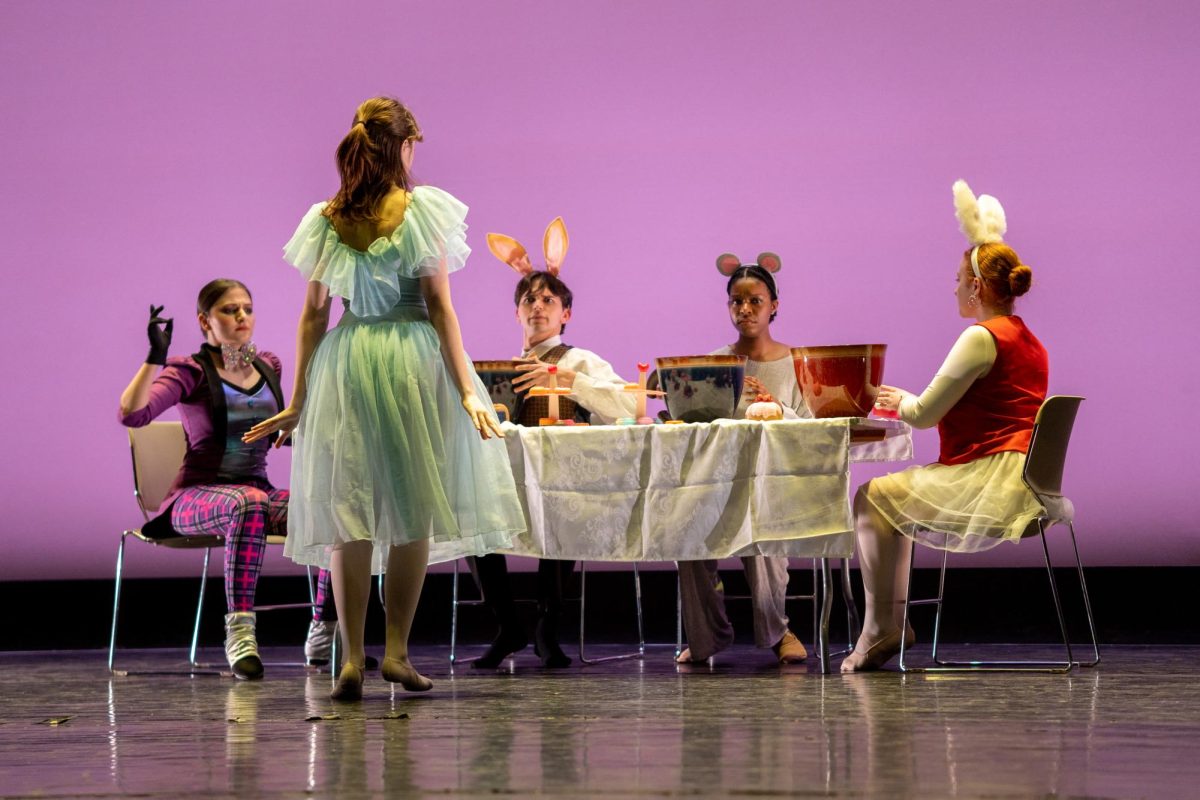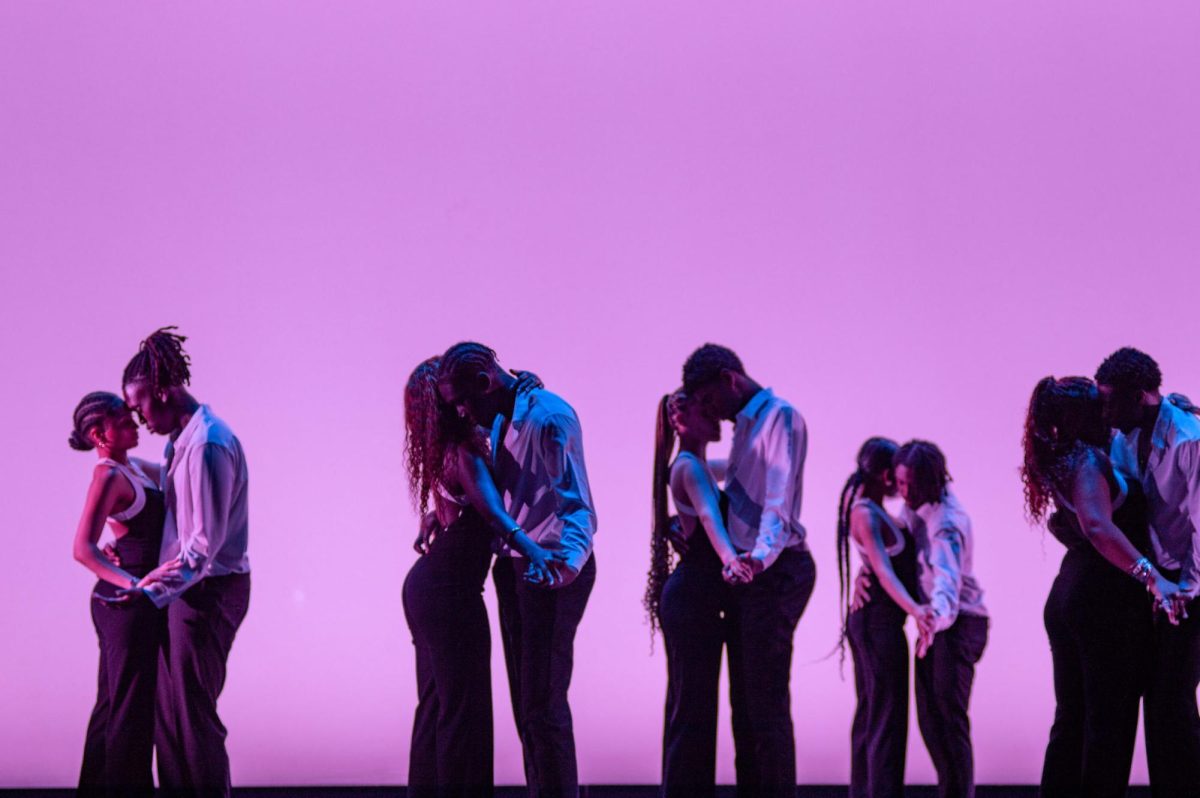“Hello, stranger / It seems so good to see you back again / How long has it been?”
It is this melody, the soulful “Hello Stranger” by Barbara Lewis, that has the power to reunite lost lovers across state borders — in a quaint diner, no less. The tension between the pair is palpable, but this reunion is more of a bittersweet encounter after a decade of distance.
“You’re the only man that’s ever touched me,” the confident, muscular Chiron (Trevante Rhodes) confesses to his childhood friend. “You’re the only one.”
Chiron wasn’t always so frank with himself, and this moment illustrates just how much he has grown. As universal as it is deeply personal, “Moonlight” takes the art of coming-of-age storytelling and brings it to its pinnacle.
The film is based on “In Moonlight Black Boys Look Blue,” a shelved, semi-autobiographical play by Tarell Alvin McCraney.
Director and writer Barry Jenkins’ masterpiece is known by all in the film community, perhaps more infamously after a mix-up at the 89th Academy Awards in 2017: Damien Chazelle’s “La La Land” was announced as winning Best Picture at the ceremony, only for it to be revealed that “Moonlight” was the actual victor moments later.
Some say “Moonlight” didn’t deserve to win Best Picture; some even said so on live television, including Oscars presenters Warren Beatty and Faye Dunaway. This misunderstanding, however, only called more attention to the fact that the film is known for surprises.
“Moonlight” is stacked with a powerful, purposeful cast, bringing Jenkins’ vision to fruition. Jenkins’ tender directing style lends itself well to the film as he takes great care with a deeply vulnerable screenplay.
The film, divided into three chapters, follows the life of Chiron, a gay, Black man exploring his identity in the heat of Miami. Indicated by a series of intertitles, the chapters explore his experiences as a child (as “Little,” played by Alex R. Hibbert), a teen (as “Chiron,” played by Ashton Sanders) and an adult (as “Black,” played by Rhodes).
Through each chapter, Chiron blossoms from a feeble boy into a self-assured man. He is broken down by his peers and even his mother (Naomie Harris), questioning who he is with little support. Yet, he is built right back up by Juan (Mahershala Ali), a kind father figure. In a pivotal scene where Juan teaches young Chiron how to swim, the boy learns to become self-reliant.
“I felt like there needed to be a moment of spiritual transference between these two characters,” Jenkins said in an interview with The New York Times. “This idea of a swimming lesson seemed like the right place to do it.” Ali ultimately won the Academy Award for Best Supporting Actor in this role.
Although “La La Land” was predicted to win Best Picture, Jenkins’ film found a way to the top. This is also true about the film’s inner workings, where Chiron finds love in such deep hatred and hope in the seemingly hopeless.
“Moonlight” is also backed up by a stunning use of color. “Running around, catching up all that light,” Juan says in a story to Chiron as a boy. “In moonlight, Black boys look blue.” This motif, which references the title of the original play, returns throughout every chapter. Jenkins shows Chiron, blue in the twilight, alongside Juan’s everlasting impact on his constant growth.
Looking back on a film like “Moonlight” is like looking through a mirror. Released almost a decade ago, it is this film in particular that always brings me back to my younger self every time. Jenkins’ work explores not only the long journey to adulthood but also the hardships of adolescence. Chiron is taken aback by the cruelty of others — from bullying to betrayal — yet is grounded with care and good faith from Juan and his girlfriend, Teresa (Janelle Monáe).
It’s inevitable to resonate with Chiron’s journey of self-discovery, and Jenkins finds the hidden beauty that comes along the way. Despite it all, Chiron learns how to become his true self, and his story is present in all of us.
For a film as vulnerable as “Moonlight” to win the Academy Award for Best Picture in 2017 is a feat for independent filmmaking. The first film with an all-Black cast to win this award, “Moonlight” marks a point in history, proving that anyone from anywhere can create something extraordinary. Despite its ever-present themes of identity and trust, Jenkins and McCraney still find a balance in highlighting unique themes of race and sexuality.
“Moonlight” is the type of film that leaves me speechless and grounded, yet, at the same time, bursting with energy. If you can connect with its themes, it will make you feel the same, as inevitably as the moon rises.










